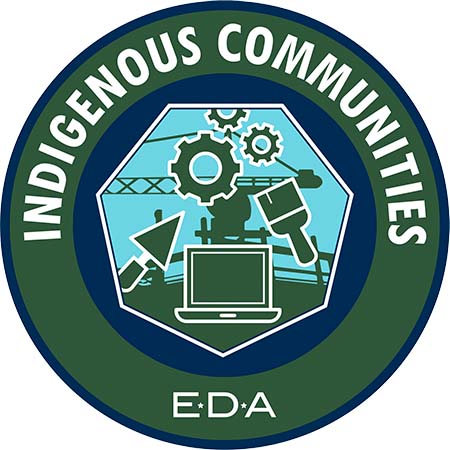WASHINGTON — A new federal initiative aims to invest $100 million to help Indigenous communities economically recover from the COVID-19 pandemic.

Want more news like this? Get the free weekly newsletter.
Under the Indigenous Communities Challenge, announced July 22 by U.S. Secretary of Commerce Gina Raimondo, the Economic Development Administration at the U.S. Department of Commerce expects to award 50 grants ranging from $100,000 to $5 million to federally recognized tribal governments and other tribal entities.
“Even before the pandemic, indigenous communities faced high levels of economic distress and unique economic development challenges, resulting in severe inequalities in opportunity for members of these communities,” according to a notice of funding opportunity. “The pandemic greatly exacerbated those challenges and inequities and will continue to cause deep economic injury to indigenous communities in unprecedented ways.”
Want more news like this? Get the free weekly newsletter.
A Commerce official said in a press call that the funding will support long-term Native recovery and resiliency to future economic disasters. The competitive grant initiative is intended to be flexible and responsive, they added.
“It’s based on the backbone of EDA’s very flexible Economic Adjustment Assistance program,” the official said in response to a question from Tribal Business News. “This program allows us to fund a wide variety of different economic needs, including planning and technical assistance, capitalization of revolving loan funds to provide access to capital to small businesses and entrepreneurs, as well as core infrastructure investments.
“What we wanted to do was ensure that we were providing some targeted programming to meet the needs of the Indigenous communities that had been so adversely impacted during the pandemic,” the official added. “We’ve taken a very flexible approach to our notice of funding opportunity...with the intent that we can best meet the needs of those particular communities.”
The Indigenous Communities Challenge will consider projects “designed to create the conditions for economic growth in indigenous communities and to accelerate economic recovery from the pandemic,” according to the funding announcement.
The Economic Development Administration anticipates projects involving “foundational economic infrastructure” including broadband, energy, roads, water and wastewater, as well as vocational and higher education facilities. Other considerations include funding for community health facility projects “necessary for future job creation.”
“Projects can also include non-construction projects to provide technical assistance to support business development, entrepreneurship assistance, economic development planning, rural prosperity, and workforce training in Indigenous communities,” according to the announcement.
The Economic Development Administration plans to fund construction and non-construction-related projects in diverse geographies, from rural and urban settings to projects on or near tribal lands. More details can be found on Grants.gov.
“We applaud the Biden Administration and Secretary Raimondo for their robust investment in Indian Country through the Indigenous Communities Challenge program,” Chris James, president and CEO of the National Center for American Indian Enterprise Development, said in an email to Tribal Business News. “It is vital that the Economic Development Administration continue to dedicate funding specifically for Indigenous communities.”
The Economic Development Administration has allocated the Indigenous Communities Challenge funding on a regional basis as follows:
- $9,428,508 — Alabama, Florida, Georgia, Kentucky, Mississippi, North Carolina, South Carolina, Tennessee
- $21,205,279 — Arkansas, Louisiana, New Mexico, Oklahoma, Texas
- $7,239,513 — Illinois, Indiana, Michigan, Minnesota, Ohio, Wisconsin
- $11,301,592 — Colorado, Iowa, Kansas, Missouri, Montana, North Dakota, Nebraska, South Dakota, Utah, Wyoming
- $6,963,176 — Connecticut, Delaware, District of Columbia, Maine, Maryland, Massachusetts, New Hampshire, New Jersey, New York, Pennsylvania, Rhode Island, Vermont, Virginia, West Virginia, Puerto Rico, Virgin Islands
- $43,861,932 — Alaska, Arizona, California, Hawaii, Idaho, Nevada, Oregon, Washington, Northern Mariana Islands, Guam, Federated States of Micronesia, Marshall Islands, Palau
Commerce officials urge Native entities to file applications for the Indigenous Communities Challenge prior to March 31, 2022.